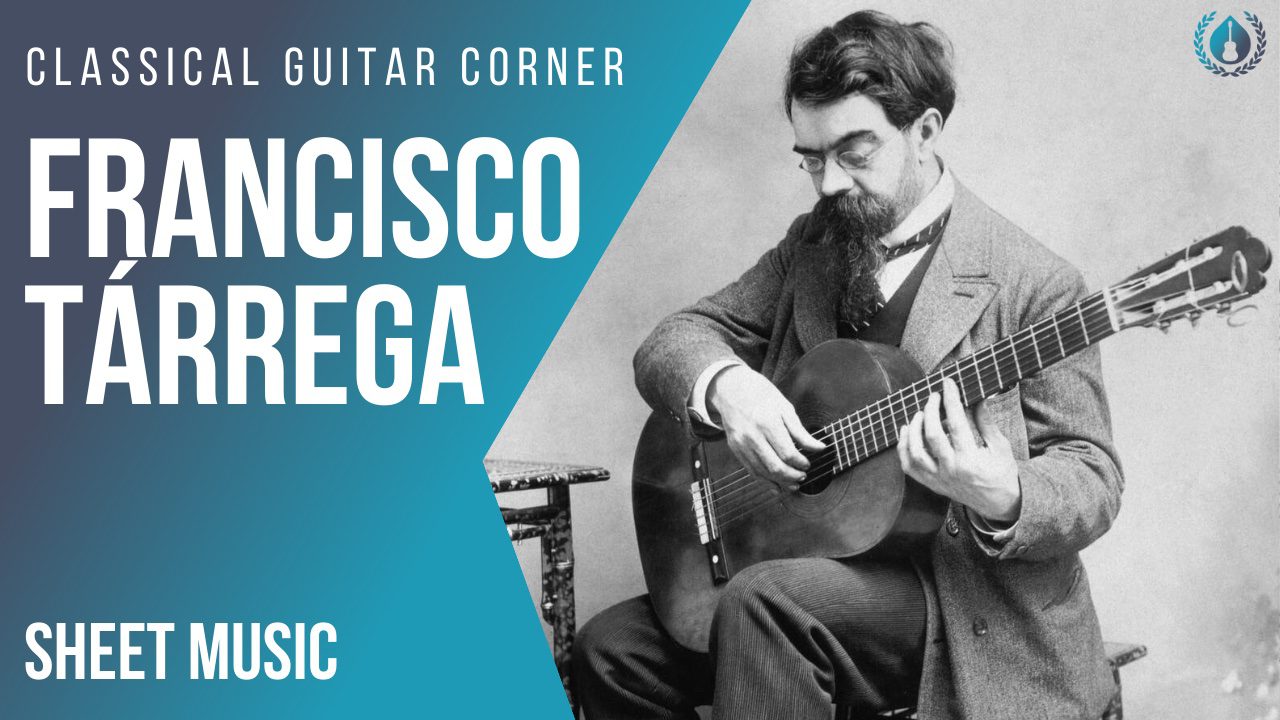Francisco Tárrega
Biography
Francisco Tárrega (1852 – 1909) was perhaps the most important Spanish composer and guitarist of the late nineteenth century. The young Tárrega took an interest in guitar very early and by the age of 10 he ran away from home several times in an attempt to begin a musical career. Eventually he settled back at home before beginning musical studies at the Royal Conservatory in Madrid in 1874. It was around this time that he purchased a guitar in Sevilla by the luthier Antonio de Torres.
After conservatory, Tárrega began performing throughout Spain and composing his own works. Around this time he also began teaching. His pupils included some of the most important guitarists and composers of the burgeoning early modern era: Miguel Llobet, Daniel Fortea, and Emilio Pujol.
While Tárrega only published 19 compositions during his lifetime, more than 80 original compositions survive. Among the most important are a prelude called “Lágrima” and a serenade called “Capricho Árabe.” In addition, he wrote more than 100 transcriptions and arrangements of other composers’ works, including those of J.S. Bach, Beethoven, Chopin, and other Spanish composers.

Sheet Music
Adelita
Adelita (PDF download)
Alborada
Alborada (PDF download)
Capricho Arabe
Capricho Arabe (PDF download)
La Cartagena
La Cartagena (PDF download)
El Columpio
El Columpio (PDF download)
Danza Mora
Danza Mora (PDF download)
Danza Odalisca
Danza Odalisca (PDF download)
Las Dos Hermanitas
Las Dos Hermanitas (PDF download)
Endecha y Oremus
Endecha y Oremus (PDF download)
Endecha (Dave Belcher, guitar) (video)
Estudio Brillante de Alard
Estudio Brillante de Alard (PDF download)
Estudio en Arpegios
Estudio en Arpegios (PDF download)
Estudio in E minor
Estudio en Forma de Minuetto
Estudio en Forma de Minuetto (PDF download)
Estudio en La
Estudio en La (PDF download)
Estudio sobre una Fuga de Bach
Estudio sobre una Fuga de Bach (PDF download)
Jota
Jota (PDF download)
Gran Vals
Gran Vals (PDF download)
Lagrima (urtext)
Lagrima (urtext) (PDF download)
Malagueña Fácil
Malagueña Fácil (PDF download)
Maria Gavota
Maria Gavota (PDF download)
Marieta
Marieta (PDF download)
Mazurka en Sol
Mazurka en Sol (PDF download)
Mazurka para Dos
Pavana
Pavana (Dave Belcher, guitar) (video)
Sueño Mazurka
Sueño Mazurka (PDF download)
